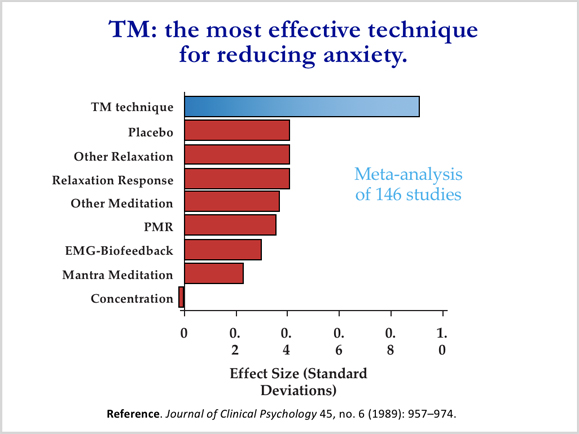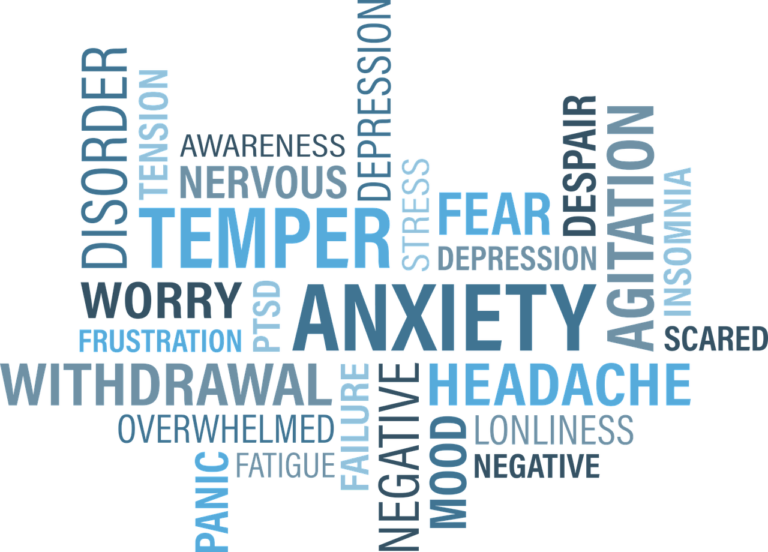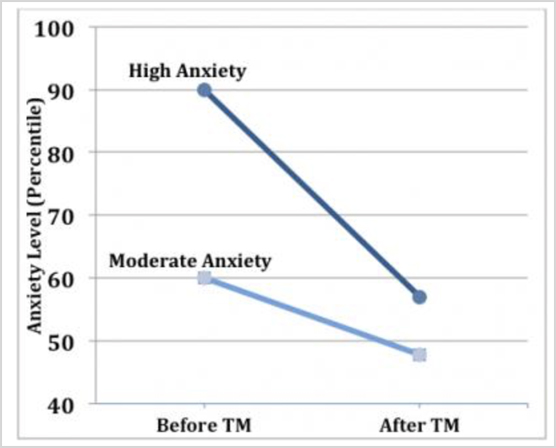“Stress is at the basis; it is at the foundation of health and unless you deal with that the rest of it absolutely falls apart. And I have seen the benefits of what TM can do for stress.”
—Susanne Steinbaum, MD and Author
A Look at Anxiety
We all experience temporary or “state” anxiety when facing a situation that we perceive as dangerous or precarious. That is a good thing as long as we can return to a peaceful state of mind once the threat is gone. But increasingly, people are experiencing “trait” anxiety, when we feel anxious all the time, every day, and in every situation, whether it is warranted or not. Anxiety runs our lives and clouds our judgement.
Trait anxiety not only affects our mood but our health. Continuous anxiety can cause heart problems, increased blood pressure, rapid breathing, difficulties with digestion, headaches, muscle pain, and fatigue.
It is essential at any time, but especially during times of uncertainty, that we find ways to manage our stress and anxiety and, if possible, to do so without resorting to medication. The Transcendental Meditation technique has been shown to be a very effective tool for managing all forms of stress and anxiety.
“TM has helped me to overcome the darkness that once surrounded me daily. It has given me the hope that I had been looking for. I finally feel peace.”
—Debbie Lawless, RPN, Former Case Manager in Community Mental Health and Addictions
Two significant meta-analyses have been done on the effect TM has on anxiety. A meta-analysis is a statistical process that combines the data of multiple studies and is a powerful statistical tool to measure the efficacy of a treatment modality.

One of these meta-analyses was done in 1989. It looked at 146 studies that measured various approaches to managing anxiety.
As the red and blue bar chart shows, TM was shown to be more effective than other forms of meditation, biofeedback, and various forms of relaxation.



